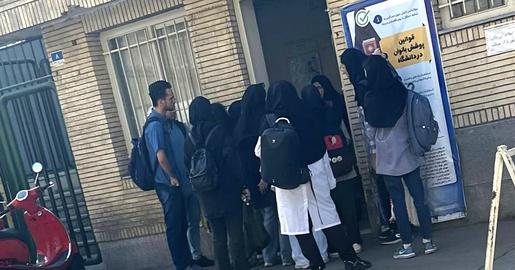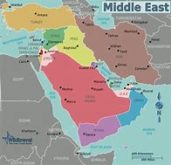Iranwire – Over 200 students from Amir Kabir University in Tehran went on strike Sunday, refusing to attend classes in protest against recent repressive actions by security agents targeting students’ attire.

The students have declared their intent to continue the strike even today, April 22.
The strike began on the morning of April 21, primarily involving students from the faculties of computer engineering, energy engineering, industrial engineering, textile engineering, and mathematics.
Additionally, numerous classes in medical engineering, chemical engineering, marine engineering, and mining engineering were also disrupted.
The Noor Plan, launched on April 13 to enforce mandatory hijab, has led to harassment of individuals advocating for optional clothing styles as a basic human right.
This initiative has caused distressing scenes of violence and harassment against women, girls, and even children across Iran’s streets and has extended its reach into Iranian universities.
Security personnel at two universities in Tehran, the University of Art and Amir Kabir University intervened in students’ attire on Saturday.
A student from the University of Art recounted an incident where security guards detained numerous individuals, including children, at the university entrance adjacent to Amir Kabir University.
Amir Kabir News Telegram channel reported that on Saturday, at least 200 students were barred from entering the university premises due to what was deemed “un-Islamic clothing.”
Videos from Amir Kabir University show security agents stationed at the entrance on Saturday, obstructing student access.
A student from Amir Kabir University described encountering detainments at the north entrance, emphasizing heightened tensions surrounding clothing regulations within the university.
The United Students Telegram channel corroborated reports of stringent clothing enforcement by Amir Kabir University security in recent days, noting the recording of students’ names for future encounters.
According to the channel, security personnel intervened over perceived violations such as wearing short-sleeved shirts.
A student from the University of Art expressed concern over the oppressive atmosphere, with security patrols leading to arbitrary arrests and restrictions on attire.
“Should the situation persist, students may consider resorting to protests akin to last year’s class boycott,” the student said.
The student highlighted the university’s implementation of plans “from Saturday,” enforcing regulations in university courtyards and campuses.
Some student sources have reported an escalation of repression within the student dormitory of Khajeh Nasir Toosi University of Technology.
According to recent reports, Saeed Abidpour, the deputy of protection at Khajeh Nasir Toosi University, along with Ahmad Davoodzadeh, the head of the dormitory, conducted unauthorized room searches without prior notice, inspecting students’ personal belongings and lockers.
Amir Kabir News Telegram channel detailed that university officials cited “consumption of a certain type of tobacco” as justification, yet students were summoned to the disciplinary committee for “possessing cigarettes” rather than smoking them.
This crackdown coincides with increased pressure on the university, which has been a focal point of nationwide protests over the past year and a half.
Since April 13, Iran’s law enforcement agencies have intensified the enforcement of hijab regulations under the national action plan “Noor.”
Incidents of arrests and the use of force against women perceived to violate dress codes have been reported from across the country.
Users across social networks are participating in a spontaneous campaign using the hashtag “war against women” to document their experiences and observations regarding the government’s crackdown on the opponents of mandatory hijab.
Reports have surfaced detailing the application of repressive tactics, particularly on female students in various universities.
Moreover, pressure on civil activists, political dissenters, women political prisoners, and cultural figures has also been mounting.
 Shabtabnews In this dark night, I have lost my way – Arise from a corner, oh you the star of guidance.
Shabtabnews In this dark night, I have lost my way – Arise from a corner, oh you the star of guidance.



